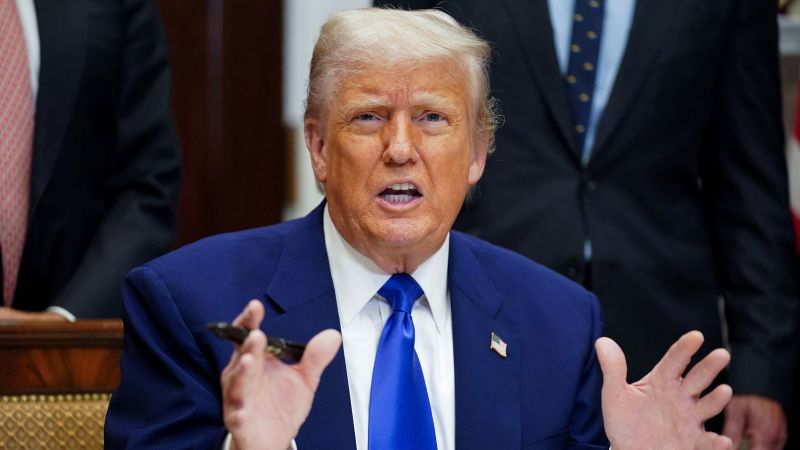President Donald Trump has escalated his campaign against the high cost of prescription drugs, directly challenging seventeen major pharmaceutical companies to significantly lower their prices within a sixty-day timeframe. This aggressive stance aims to align U.S. drug prices with the considerably lower rates found in other developed nations, a move rooted in his administration’s ongoing efforts to tackle soaring healthcare costs. The unprecedented demand underscores a pivotal moment in the debate over drug affordability and access in America.
At the heart of Trump’s directive is the concept of “Most Favored Nation” pricing, a mechanism that would compel drug manufacturers to offer U.S. patients the lowest prices available for their products globally. Specifically, Trump is pushing for this benchmark pricing to apply to all drugs covered by Medicaid and for new drugs entering Medicare, Medicaid, and commercial insurance markets. This initiative, articulated in detailed letters sent to top pharmaceutical executives, signals a firm resolve to curb what the administration views as inflated drug costs for American consumers.
The origins of this renewed pressure trace back to an executive order signed by Trump in May, which mandated drugmakers begin offering more equitable pricing or face potential repercussions. Despite prior discussions between health officials and pharmaceutical firms, the president indicated dissatisfaction with the progress made. He criticized previous industry proposals as merely “shifting blame” and seeking “billions of dollars in handouts,” emphasizing his demand for immediate relief for American families from exorbitant prices.
Trump’s letters conveyed a clear ultimatum: comply with the demands for lower prices or face the full deployment of the administration’s “arsenal” of tools. Potential ramifications outlined in the May executive order include crafting new rules to implement the policy, facilitating increased drug importation, reviewing drug exports, and even modifying or revoking drug approvals by the Food and Drug Administration if products are deemed “unsafe, ineffective, or improperly marketed” in the context of pricing. This highlights the administration’s multi-pronged approach to address what it perceives as an ongoing crisis in US healthcare.
Unsurprisingly, the pharmaceutical industry has voiced strong opposition, warning that such measures could stifle vital research and development and potentially undermine American leadership in biopharmaceutical innovation. Organizations like the Pharmaceutical Research and Manufacturers of America (PhRMA) argue that importing foreign price controls would harm patients and workers alike, advocating instead for policies that rein in healthcare middlemen and encourage other countries to pay their fair share for innovative medicines. This clash of perspectives underscores the deep divisions in the pharmaceutical policy debate.
Financial markets reacted swiftly to the news, with stock prices for several major pharmaceutical companies, including Eli Lilly, Merck, and Johnson & Johnson, experiencing notable declines. This immediate market response reflects investor concerns regarding the potential financial impact of the proposed Trump drug prices mandates on corporate revenues and profitability. The broader S&P 500 Pharmaceuticals Industry Index also saw a significant dip, illustrating the sector-wide apprehension.
Legal experts, however, cast doubt on the president’s direct authority to enforce such pricing demands. According to Spencer Perlman, director of health care policy research at Veda Partners, existing legal and regulatory frameworks do not grant the president the power to unilaterally impose “Most Favored Nation” prices across all markets. While the administration might explore options through the Centers for Medicare and Medicaid Services’ Innovation Center, such attempts would likely face considerable legal challenges.
Despite the legal hurdles, analysts suggest that Trump’s strategy is primarily one of public pressure, aiming to compel pharmaceutical companies to voluntarily adopt practices he cannot legally mandate. Chris Meekins of Raymond James noted that no company wishes to be the direct target of the U.S. government’s full power. While the long-term impact on healthcare costs for most American patients remains uncertain, this bold move undoubtedly places the pharmaceutical industry in a precarious position, demanding a response to public discontent over high drug prices and reflecting complex executive orders in action.






Leave a Reply